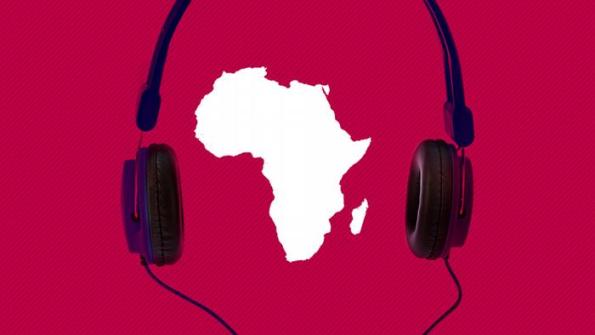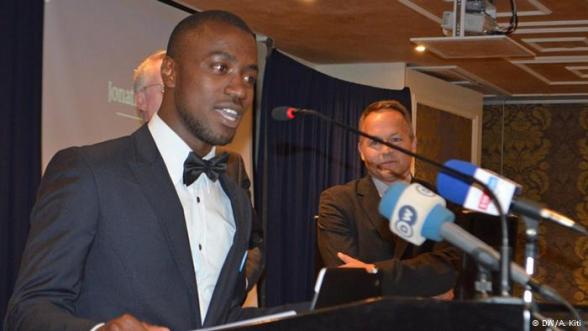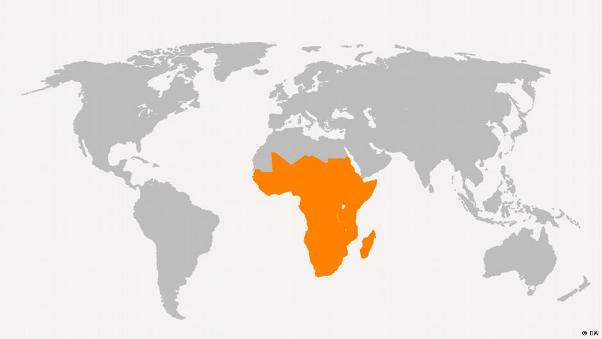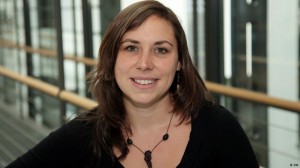Search Results for Tag: Nigeria
Market roundup: February 2016
Africa
Several radio partners in Sub-Saharan Africa are expanding cooperation with DW. In Nigeria, Radio Gombe is acquiring English and Hausa radio programs. The station covers the states of Yobe, Borno and Adamawa. In Congo, Radio Mwana is acquiring DW’s complete French programming lineup, with stations in Mbandaka and Gbadolite that reach more than 750,000 listeners. A new radio partner in Mbuji-Mayi, Radio Fraternité, will be broadcasting one hour of French programming daily to a potential 500,000 households. In Ghana, the Internet radio broadcaster Ghana Waves Radio now includes DW live streams in six languages. The streams are also included on the Ghana Waves app and on-demand. DW radio live streams and newsfeeds in a variety of languages are also available now across Africa on the Africa Live Radio and News App.
The Liberian state broadcaster LNTV is now broadcasting one hour of DW programming every day. LNTV is the only Liberian TV broadcaster with nationwide coverage. Included in the programming package is DW News, Euromaxx, Kick off!, and In Good Shape.
In Tanzania, DW is the first international news provider available on the video-on-demand platform SIMUtv. The app has already been downloaded 100,000 times.
Asia
DW has expanded cable network partnerships in India and Bangladesh, with several cable providers acquiring DW’s English channel. This increases DW’s technical range by 400,000 households in Bangladesh and by 250,000 households in the Indian states of Bihar and West Bengal.
The Bengali-language app Kokil now includes an RSS feed with content from DW Bengali. The app currently has 50,000 users.
DW’s English-language channel is now part of the line up on Star Cable Network, the largest cable network in the Afghan capital, Kabul.
South America
The Colombian news website Publimetro now features a DW content box with Spanish-language news articles from DW. Publimetro belongs to Metro International, a well-known publisher of free newspapers in cities around the world. The Publimetro news portal registers 3.2 million unique visitors every month.
Europe
DW has a new Smart TV partner in the United Kingdom. The OTT provider Vision247 is now broadcasting DW’s flagship English channel in its entirety on the free-to-air entertainment portal, Vision TV. The portal is available on the digital TV service Freeview on channel 244 and can be received by a potential 7.3 million households in Great Britain. Vision TV is also available for mobile devices and on web-TV.
DW adds a new dimension to cooperating with African media
Across Africa from Kenya to Nigeria, a new media-savvy generation is emerging along with a new demand for opportunity, development and quality journalism. By reaching out to individuals, creating new partnerships and actively encouraging media development, DW has created a foundation for success in different African markets, while at the same time giving value back.
By adding value to partnerships and cooperating with local media in different regions, DW can help improve people’s lives with information and help set examples of transparency, legitimacy and professionalism in media.
DW’s international media development organization, DW Akademie, is very active in Africa and has been for over 50 years. DW Akademie’s first international project was a radio training program in Rwanda. Their newest initiative is a recently-signed partnership with Aga Khan University Graduate School of Media and Communications (AKU-GSMC) in Nairobi, Kenya.
The university is focused on developing media professionals for the Kenyan media market. DW is there to help guide and educate them with world-class standards of journalistic practice. In return, DW will gain valuable insight into the nuances of the local media landscape. The six-year agreement centers on the development of professional education and training standards for communications experts in East Africa. Through exchanging experience, competences and ideas, both sides will benefit. DW gains visibilty in an important media market and the courses at AKU-GSMC can improve and develop with the expertise and experience provided by DW Akademie.
Kenya is one of the quickest growing media markets in Africa and there is a burgeoning interest in media education amongst young Kenyans. The market is growing more competitive and innovative.
DW recently produced a journalism competition for young journalists in Kenya. They were asked to create a journalism project that profiled a local hero in their region. Local heroes are people who make a difference in their communities and help those around them. The competition was organized in cooperation with The Standard Group, which is the largest media company in Kenya. The competition showed how through cooperating with partners, DW can affect the lives of people in African target audiences while gaining valuable partners and a positive local image.
Nigeria is another important market for DW in Africa. DW has been expanding its presence in the region after adding two foreign correspondents last year in Lagos and recently signing a deal with Channels TV, the largest news broadcaster in Nigeria. The deal includes direct DW reports from the Frankfurt Stock Exchange produced exclusively for audiences in Nigeria. This example of coproducing and sharing technical capacity is a model for the future of how DW will provide international quality journalism to local audiences.
Programs like Focus on Africa and Crossroads Generation emphasize individuals who help to set examples and serve as role models. They provide examples that turn away from the image of the continent as only being beset by turmoil and focus on positive actions from a younger generation.
DW will succeed in African markets by working with partners, reaching people where they are, educating media professionals and promoting journalism education. These are all very positive steps with the consistent goal to improve the overall media landscape in African countries.
Market roundup: July 2015
Asia
DW’s new global English news channel is now available in Afghanistan via satellite after a three-year contract was closed with the satellite provider Afghanistan Broadcasting System. The satellite Afghansat 1 is operated by Eutelsat and will carry 60 international and national channels to a potential 1,5 million subscribers.
DW has a new broadcasting partner in Indonesia. The nationwide television provider Sky LBS will now carry the full program from DW’s new English news channel via cable, satellite and IPTV. Sky LBS can reach a potential 35.8 million households and has 123 national and international channels in its portfolio.
DW Akademie has opened a new office in Yangon, Myanmar in partnership with the German Federal Ministry for Economic Cooperation and Development (BMZ). The primary activities of DW Akademie in Myanmar are supporting the transformation of the state broadcaster MRTV and the construction and development of the first private journalism school in Myanmar, Myanmar Journalism Institute. DW Akademie has been active in Myanmar since 2009.
Europe
DW has partnered with the German UNESCO commission and the German Federal Foreign Office for a conference being held this month in Bonn. The highlight of the conference will choosing a new UNESCO World Heritage Site. For the occasion, DW produced a multimedia website Wege zum Welterbe that traces a virtual path across all World Heritage Sites in Germany.
Africa
DW and Nigerian broadcaster Channels Television have signed an extensive cooperation agreement.
The new partnership will feature live broadcasts with a DW market reporter from the Frankfurt Stock Exchange and four weekly interviews with DW correspondents covering current German and European issues in society and politics. Channels Television has the widest broadcasting range in Nigeria.
How to unlock the full potential of online video even on low-quality networks
There is a high demand for quality media in Africa but in many places network infrastructure cannot keep up. A positive aspect of this technological disparity is that it promotes the development of alternative services, which provide access to media by getting around network deficiencies. Launched in January 2012, Tuluntulu (which means stream in Zulu) opens the floodgates to a reservoir of uninterrupted television streams on mobile devices– even in locations with low-bandwidth networks.
Now DW’s flagship English channel will be included Tuluntulu catalogue. This new partnership will bring world-class programming and information to a hard-to-reach audience. With partners on board like DW, no one has to miss out on quality content because of technological deficiencies.
Tuluntulu works by using Adaptive Real-time Internet Streaming Technology (ARTIST), which allows content to stream at low data consumption levels. The service was developed specifically as a platform for the technology. The company claims that ARTIST technology can provide unbroken streaming video at the low broadband speed of 30kbps adding that no other service can provide video under 100 kbps. With its wide-selection of networks, Tuluntulu is truly a breakthrough for mobile media in Africa. The service is free to download right now for iOS or Android devices.
This is only the beginning of developing these technologies and DW is an integtral part of what makes them so important in providing information to those who need it in a place they couldn’t find it before.
Let’s get high-quality information to low-tech devices in Africa
Annelie Moreira Da Silva, DW Distribution Representative for Africa
Smartphones are fast becoming the standard tool for consuming news and information, but for many people in developing and emerging countries, this technology is still out of reach. It is estimated that out of the total 5 billion mobile users worldwide, only 1 billion are using smartphones. The remaining number represents a majority of people in emerging and developing countries who are using 2G or “feature phones” for mobile Internet access.
DW works hard to provide top-quality news and information to people in hard to reach places. In emerging markets such as in Africa, expensive Internet and mobile technology makes smartphones a luxury that few can afford. Most people try to use their feature phones to access valuable social networks and online news which usually demands a higher level of data processing than these devices can provide – but there are some solutions.
A innovative platform called biNu is providing a way for feature phones to efficiently navigate the web. And since June, DW has been cooperating with biNu to provide feature phone users in Africa with easy access to DW’s high-quality online news content.
The biNu app provides high-end functionality by turning feature phones with a basic Internet connection into “virtual smartphones.” It achieves this by using cloud networks to process and compress data from websites allowing the end result to be easily used via a feature phone. The result of using a cloud platform to streamline data is a service that is 10 times faster than a standard mobile browser while requiring 10 times less bandwidth. The displays are simplified and optimized for a feature phone and the most important elements of the website are passed on to the user.
The service already has more than 900,000 users in Africa, mostly located in fast-growing media markets like Nigeria, Kenya, South Africa and Ghana but also in countries like Zimbabwe and Ethiopia where, because of the difficult political climate, are harder for international media to access.
Even as infrastructure improves, the low cost of feature phones and continually expensive network and Internet access means that many people in these developing countries will continue to use their mobile phones as the primary device for going online. Providing them with easily accessible news, information and social networks is a hugely important task. Through cooperating with biNu, DW can overcome the disparity in international technological standards and provide information that people need on the device that they prefer.












Feedback